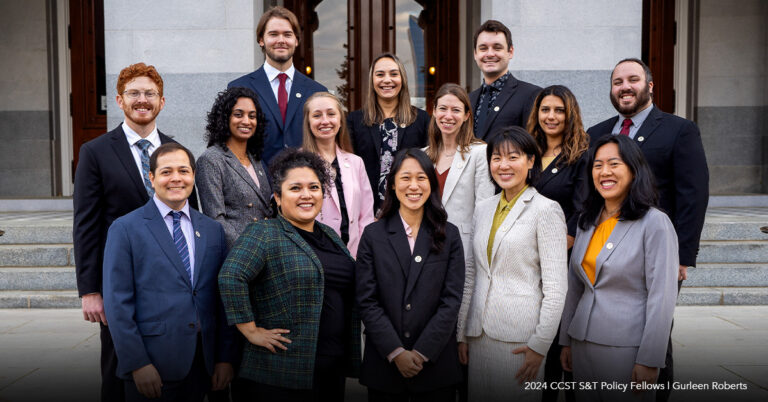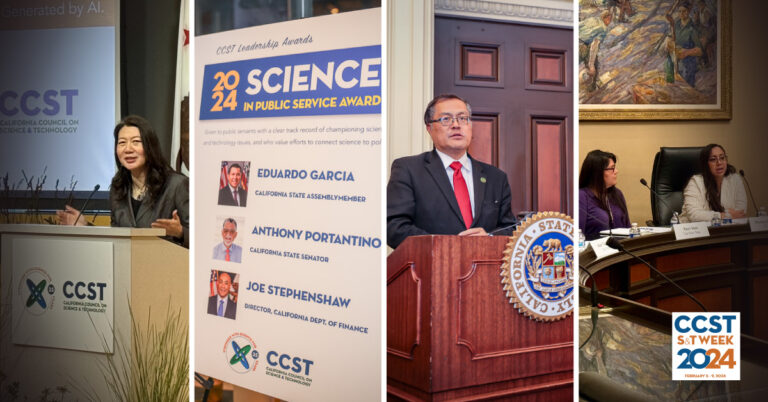Update: Applications for the CCST Science & Technology Policy Fellowship Have Closed
NRC Report Recommends Expansion of Professional Science Masters Programs
July 16, 2008 | CCST Newsroom | Contact: M. Daniel DeCillis

Professional Science Master’s (PSM) degree programs, a recently designed range of hybrid degrees intended to combine graduate science training with business skills, merit further support and expansion, according to a recent National Research Council (NRC) report by the Committee on Enhancing the Master’s Degree in the Natural Sciences. The report drew in part upon the experiences of the California State University System (CSU), which has engaged in a systemwide effort to develop PSM programs, and previous research by CCST.
“Industry, government, and nonprofits need employees who have deep scientific knowledge as well as skills to apply that knowledge in innovative ways,” said Rita Colwell, committee chair and Distinguished University Professor at the University of Maryland and the Johns Hopkins University Bloomberg School of Public Health. “A reinvigorated master’s degree in the natural sciences can answer the demand for such science professionals and help ensure that the U.S. has the workforce it needs to stay competitive. It’s time to accelerate the development of these programs nationwide.”
Alternative models of master’s degrees designed to fit the growing need for personnel with both scientific acumen and effective business skills have been developed in universities around the country, including The Keck Graduate Institute of Applied Life Sciences in Claremont (KGI), which developed the Master’s of Bioscience in close cooperation with companies such as Amgen, and several CSU campuses, which have developed various PSM programs. CCST released a study in 2005, Industry Perspective on the Professional Science Master’s Degree, which surveyed a selection of California high-tech business leaders in a bid to assess the potential value of CSU expanding development of PSM programs.
“Our study did find interest in the idea of master’s degrees with different combinations of science and business skills,” said CCST Senior Research Associate M. Daniel DeCillis, who was the project manager for the report. DeCillis addressed the NRC committee in 2007. “We are pleased that the NRC report does underscore the fact that all of our recommendations targeted the need to improve communication between industry and institutes of higher education. This was a central theme that emerged from nearly all of our industry participants.”
Establishment of strong relationships between academic institutions and industry to develop PSM programs is also a central theme of the NRC recommendations. The committee recommends, among other things, that federal funding be expanded to develop PSM programs, with grants to be awarded to institutions that “demonstrate that they have a substantial and productive partnership both with employers and with the professional practice community.”
CSU’s early systemwide promotion of the PSM puts it in a strong position to continue expansion of its programs. It is considered a national model, as featured at the National Governor’s Association Professional Science Master’s Academy held in June in Sacramento.
“The PSM degree is still in an early stage of development, relatively speaking,” said CCST Executive Director Susan Hackwood. “The NRC report, combined with CCST’s own work and the pioneering efforts of institutions such as KGI and CSU, will facilitate the expansion and emulation of successful models of industry-academic partnership both throughout California and nationwide, to help maintain the competitiveness of our high-tech workforce and industries overall.”






